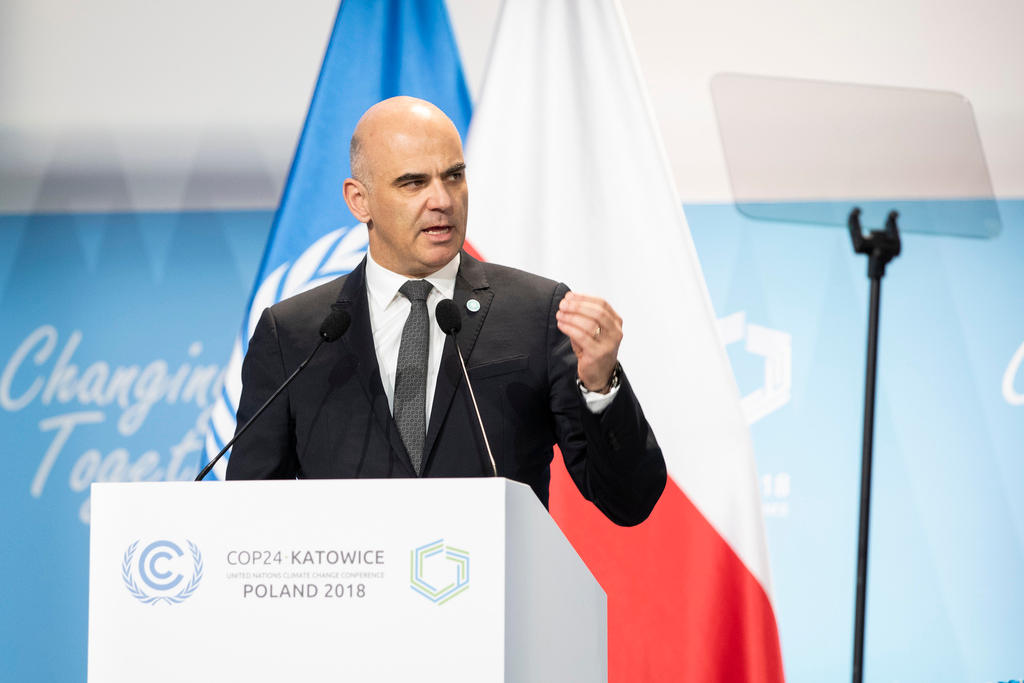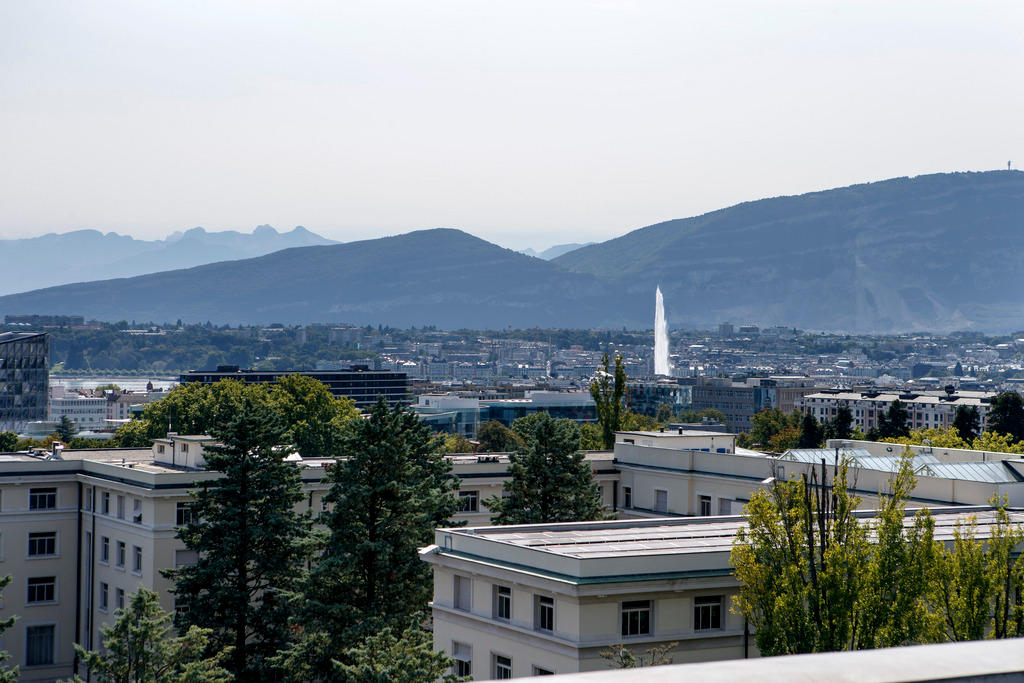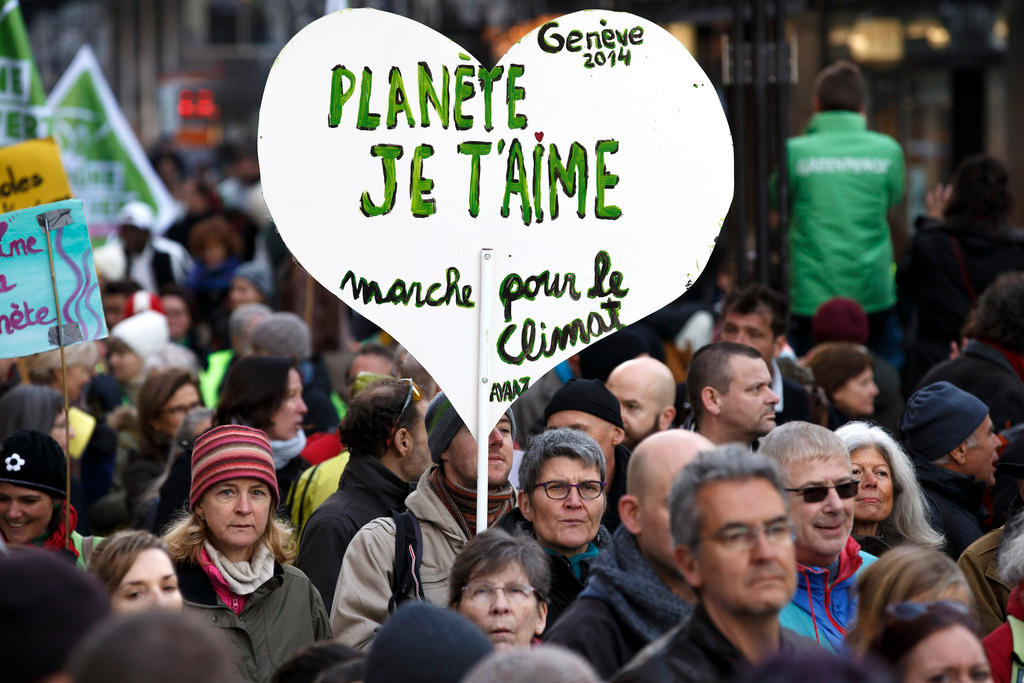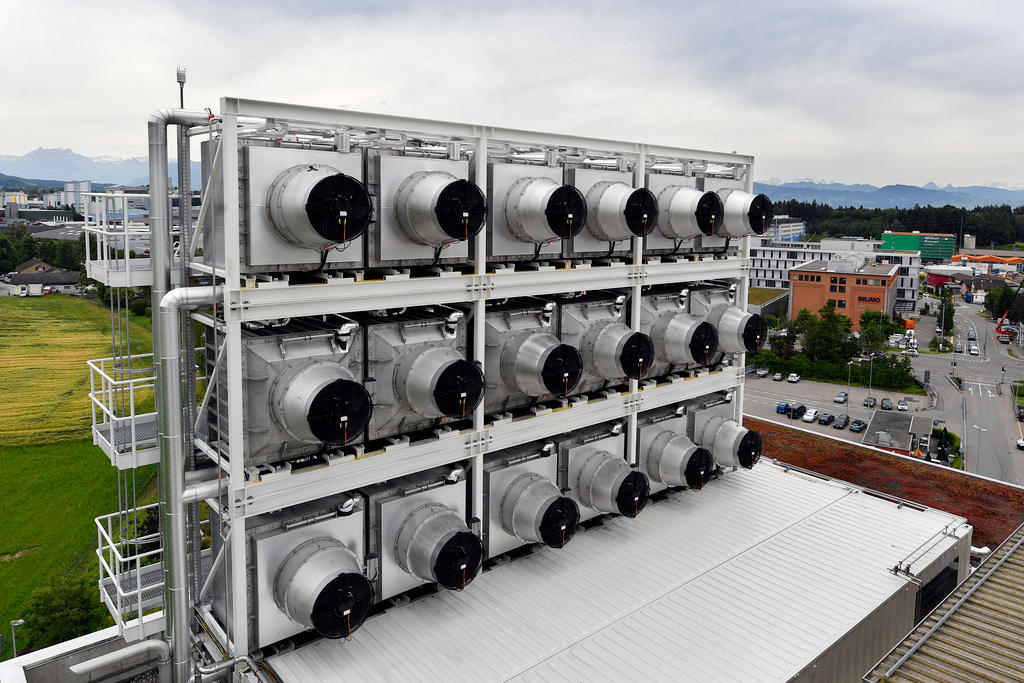Swiss promise more support at UN climate conference

Switzerland is prepared to up its contribution to the fight against climate change to the tune of $120 million (CHF119.6 million), according to President Alain Berset, speaking at the COP24 in Poland on Monday.
The funding will come from the Swiss Agency for Development and Cooperation (SDC), as well as the State Secretariat for Economic Affairs (SECO), said Berset, speaking at the 24th United Nations’ climate conference in Katowice, Poland.
Specifically, it will go towards helping emerging economies implement climate policies: $76 million in the form of bilateral projects, $12 million to the International Fund for Agricultural DevelopmentExternal link, and $9 million for the CREWSExternal link climate risk and early warning initiative.
Money is also earmarked for the BioCarbon Fund operated by the World Bank, Berset said.
His address (in French)External link contained stark warnings about the necessity of acting soon to head off climate change: “the number and frequency of extreme weather events is rising, certain infrastructures are threatened, and new diseases are appearing”, he said.
Since 1984, average temperatures in Switzerland have risen by 2 degrees Celsius, which is more than twice the global average, he added, before referring to the clearest sign of the warming in the country: the inexorable melt of the Alpine glaciers.
+ 2018, a devastatingly hot year for Swiss glaciers
His participation at the 12-day COP conference comes at a time of heightened activity in the field of climate policy.
Last week, along with 15 other European countries, Switzerland signed a declaration aimed at reviving the ambitious objectives of the Paris Agreement to limit the rise in temperatures to 1.5 degrees Celsius – an objective that requires Switzerland reducing by half, compared to 1990 values, its CO2 emissions by 2030, then eliminating them completely by 2050.
Also on Monday, while Berset was in Poland, the House of Representatives in Bern began its quest to concretely achieve the goals, debating the government’s proposed modifications to the carbon law, which includes an overhaul of standards for vehicles and buildings (among others).
The debate in Parliament, which will continue well into next spring, promises to be heated, with both sides of the political spectrum taking issues with some of the revisions: disagreements on how much to increase the cost of petrol, for example, and whether or not an added tax on air travel, look set to be contentious.
Beyond this, while some right-wing voices question the very foundation of the reform – saying too much climate protection will harm competitiveness and the economy – on the left the fear is that the reforms don’t go far enough. Even allowing a 1.5-degree increase in temperatures will be devastating for the planet, they say.

In compliance with the JTI standards
More: SWI swissinfo.ch certified by the Journalism Trust Initiative



You can find an overview of ongoing debates with our journalists here. Please join us!
If you want to start a conversation about a topic raised in this article or want to report factual errors, email us at english@swissinfo.ch.